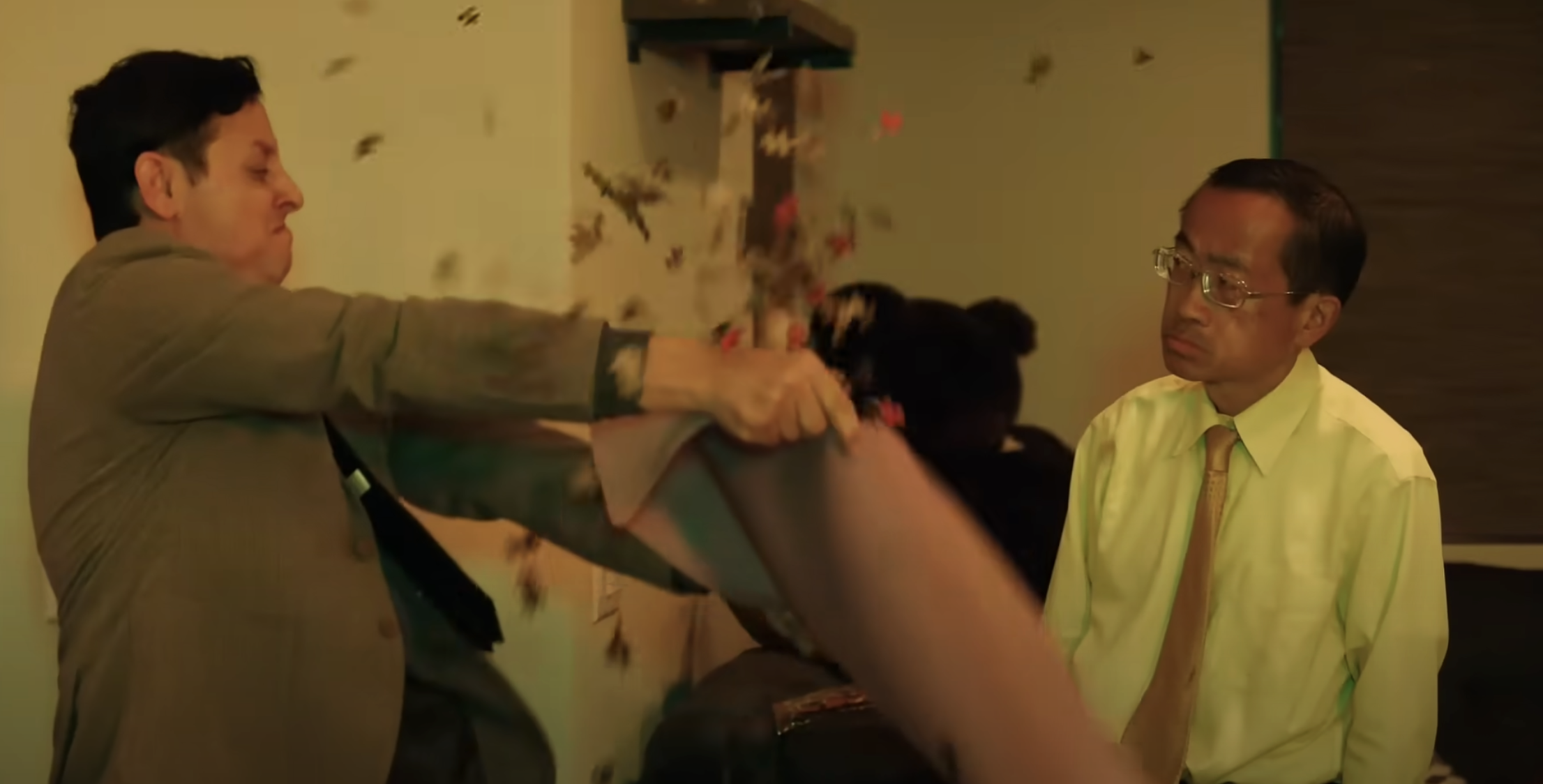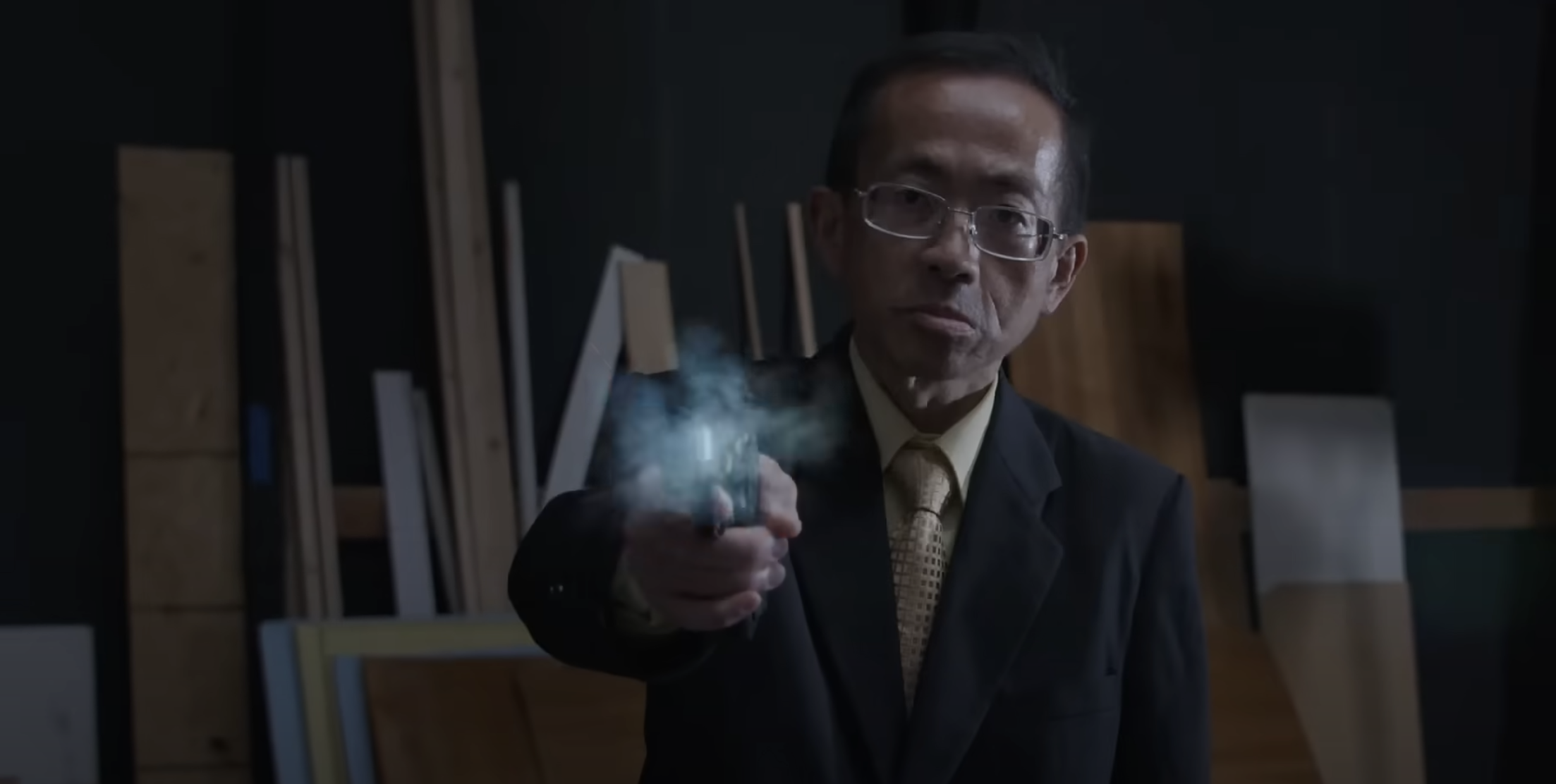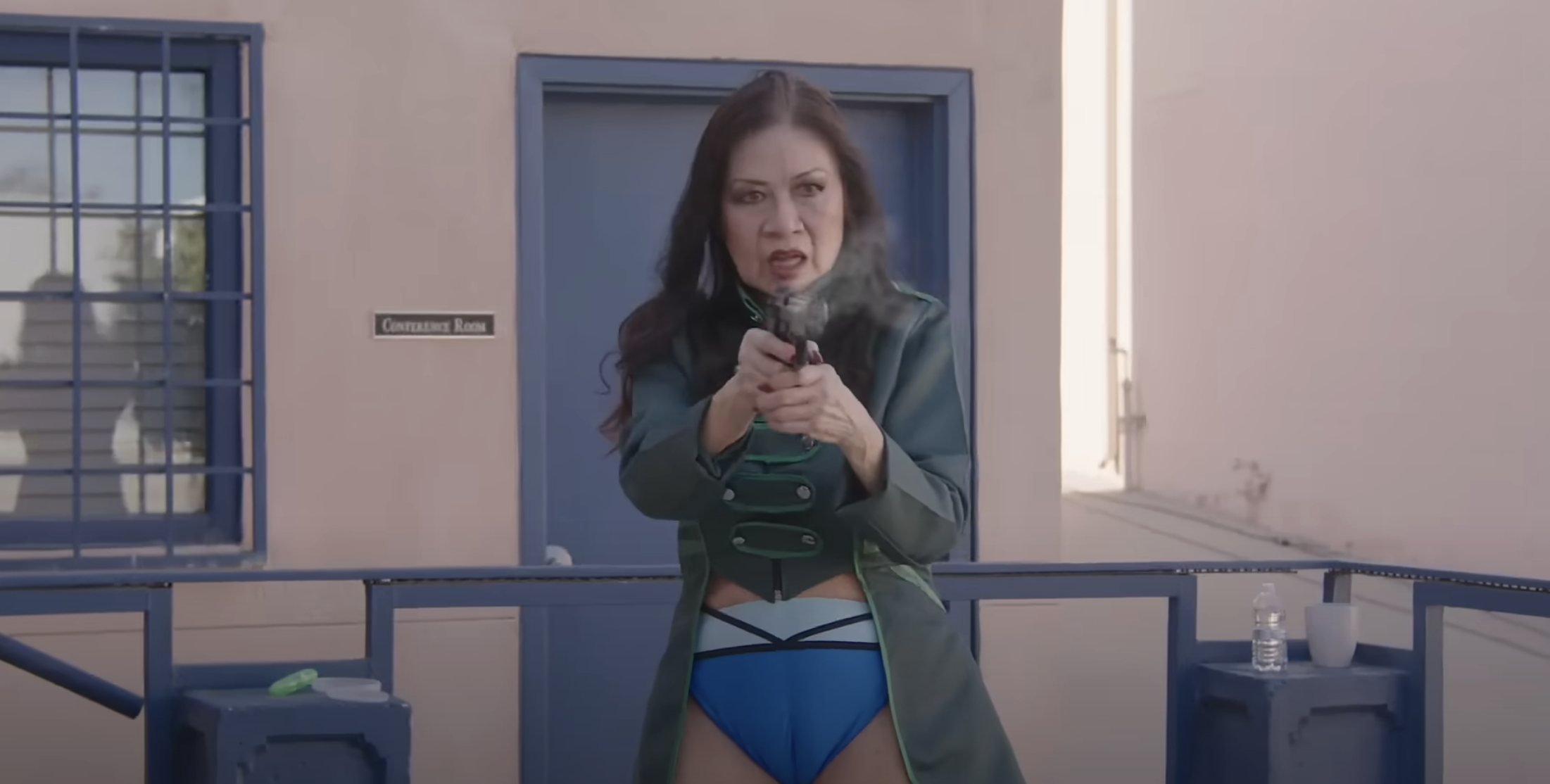Gregory Hatanaka’s A Man Is Dead is an indie crime drama that refuses to play by traditional rules. On paper, it’s about a man pushed to the brink by betrayal and violence, leading him down a path of vengeance.
But in execution, it’s far more than a genre exercise—it’s a restless, experimental meditation on guilt, regret, and the role of the artist in confronting mortality.
The film often unfolds in fragmented scenes where tense standoffs are intercut with philosophical digressions. Characters muse about regrets, poetry, and even food, as if holding onto life’s smaller pleasures in the shadow of violence.
In one striking stretch, Hatanaka himself appears on screen, audibly directing, folding the process of filmmaking into the story itself. This meta element makes the film feel raw and alive, almost like a cinematic diary.
The ensemble cast—Warren Hong, Chris Spinelli, Masashi Ishizuka, Saint Heart, Lisa London, Louis DeStefano, and others—navigate this shifting landscape of tension and reflection with varying tones. Some performances lean into theatrical monologue, while others remain understated, creating a rhythm that’s uneven but purposeful. The near-silent protagonist becomes a mirror for the characters around him, absorbing their outpourings of memory, art, and lament.
One of the most memorable sequences involves Hatanaka’s lament for long-forgotten 16 RPM records. It’s a moment that encapsulates the film’s themes: a longing for things lost, a recognition of impermanence, and an insistence on the importance of art even in chaos. While the story suggests endings, it’s worth noting that Hatanaka remains creatively active, with multiple films currently in production. That context makes A Man Is Dead feel less like a goodbye and more like a deeply personal checkpoint in a continuing career.
The film won’t be for everyone—its meta experiments and loose structure may challenge viewers expecting a straightforward thriller. But for those willing to meet it on its own terms, A Man Is Dead is a hypnotic, passionate work, both elegiac and defiant. It shows Hatanaka as a filmmaker unafraid to blur the line between story and self, crime and confession, finality and renewal.
Jessie Hobson



